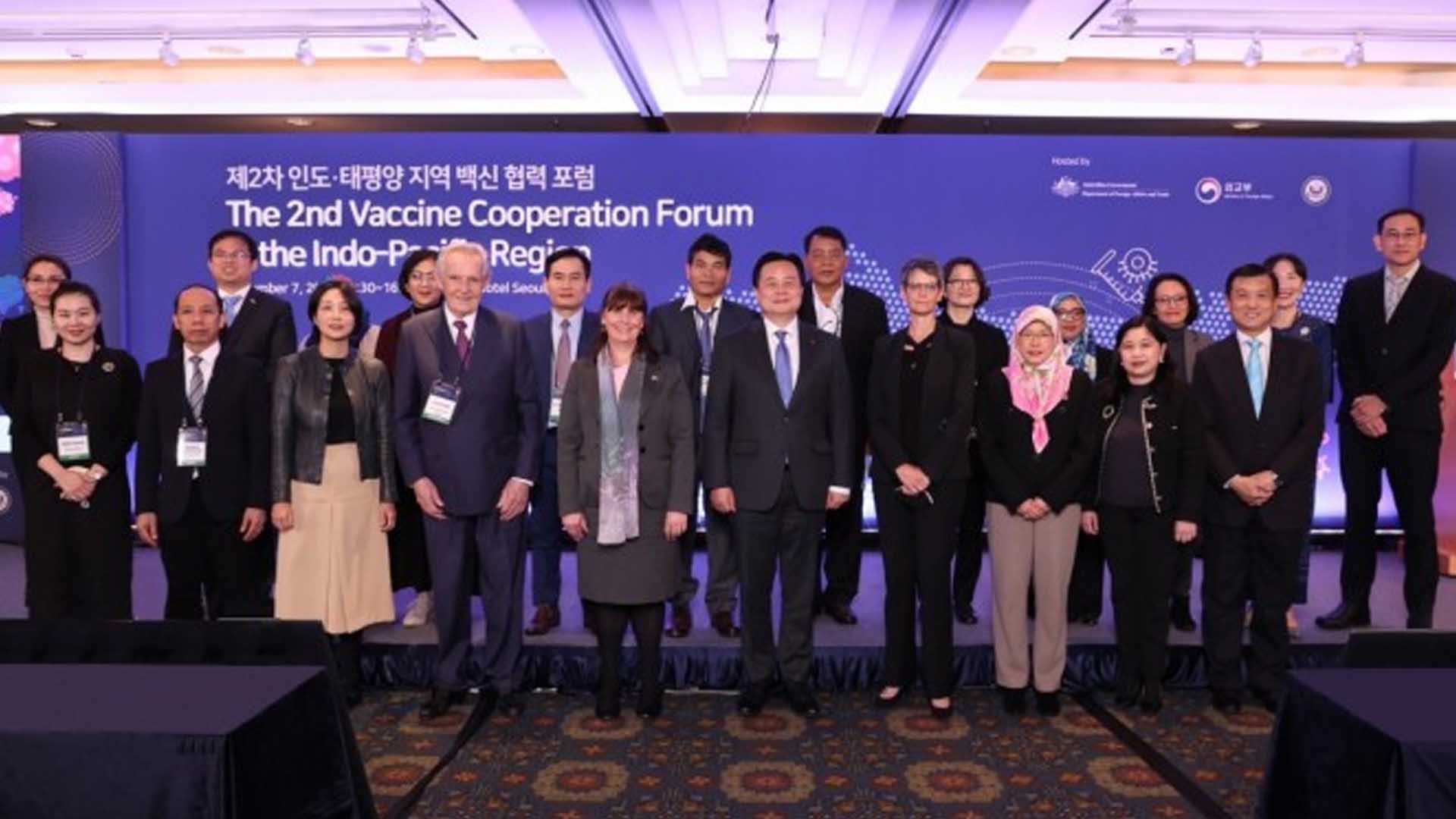The Philippines on Wednesday joined the international community in its initiative to provide free and universal access to quality jabs against the coronavirus disease 2019 (Covid-19) and other vaccine-preventable diseases.
During the 2nd Vaccine Cooperation Forum in the Indo-Pacific Region, Philippine Ambassador to South Korea Maria Theresa Dizon-de Vega said the Covid-19 pandemic taught countries a lot of lessons and gave the Philippines the opportune time to engage with its partners in the region and worldwide.
“And these are on the best practices for health management, data-driven governance and smart governance, for our health system and hopefully, we could take away some inputs, which we can use, which we can modify, depending on the needs of our public citizens in the Philippines,” she said.
The forum gathered 20 health experts and top officials from South Korea, the United States, Australia, and member countries of the Association of Southeast Asian Nations (ASEAN) in a bid to strengthen the resilience and preparedness of countries for future pandemics.
Vice Minister of Foreign Affairs Hyundong Cho said the Korean government hosts discussions as “it actively contributes to building a free, peaceful, and more prosperous Indo-Pacific region” as the region acts unitedly against the threats of Covid-19.
“Regionally, ASEAN quickly harnessed its collective efforts and launched the ASEAN Covid-19 Response Fund and the Regional Reserve of Medical Supplies making a rapid region-wide response possible,” he said. “ASEAN also took leadership in the region’s recovery by adopting the ASEAN Comprehensive Recovery Framework.”
Founding CEO of Gavi, The Vaccine Alliance and Special Advisor to CEPI, Dr. Tore Godal said the conference, which was organized by South Korea’s Ministry of Foreign Affairs together with Australia and the United States, is “extremely important as it promotes and illustrates the importance of regionalization in terms of vaccine development and production in such a way regions can be independent when situation calls for it.”
US Deputy Coordinator for Global Covid-19 Response and Health Security Lora Stone underscored the need for countries to establish vaccine security and production.
“We also need continued political and financial commitment to this development, to this training, to sustainable production, and information sharing,” she said. “One more suggestion that we need to coordinate amongst our various efforts in vaccine production partnership to make sure that we’re not competing against each other and these are truly long-term sustainable efforts.”
PH-Korea cooperation
Dizon-de Vega disclosed that Department of Health (DOH) officer in charge Undersecretary Ma. Rosario Vergeire was in Seoul last week to represent the Philippines in the global health security ministerial meeting where officials from other countries shared the impact of Covid-19 and other public health issues.
The Philippines can learn a lot from Korea because it has an advanced public health management system similar to the US Centers for Disease Control and Prevention (CDC), she said.
“The Department of Health and the Department of Foreign Affairs are in constant engagement with our partners here in Korea and with our partners throughout the region in terms of best practices sharing, in terms of human capacity building, in terms of building the soft infrastructure which is very necessary to manage public health emergencies, public health concerns, and vaccination and also public awareness and education about health issues,” she added.
Through Senate Bill 2505 or the Philippine Centers for Disease Control and Prevention Act, the DOH aims to move out of the pandemic and ensure health care for every Filipino.
The bill, when enacted into law, will establish the Centers for Health Statistics, Surveillance and Epidemiology, Health Evidence, and Reference Laboratories.
The creation of the Virology Institute of the Philippines and the National Disease Prevention Management Authority is included in the eight priority measures laid out by President Ferdinand R. Marcos Jr. (PNA)







